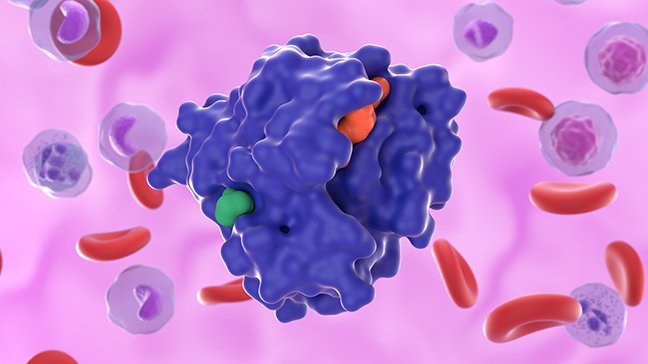- Diseases
- Acoustic Neuroma (14)
- Adrenal Gland Tumor (24)
- Anal Cancer (66)
- Anemia (2)
- Appendix Cancer (16)
- Bile Duct Cancer (26)
- Bladder Cancer (68)
- Brain Metastases (28)
- Brain Tumor (230)
- Breast Cancer (718)
- Breast Implant-Associated Anaplastic Large Cell Lymphoma (2)
- Cancer of Unknown Primary (4)
- Carcinoid Tumor (8)
- Cervical Cancer (154)
- Colon Cancer (164)
- Colorectal Cancer (110)
- Endocrine Tumor (4)
- Esophageal Cancer (42)
- Eye Cancer (36)
- Fallopian Tube Cancer (6)
- Germ Cell Tumor (4)
- Gestational Trophoblastic Disease (2)
- Head and Neck Cancer (6)
- Kidney Cancer (124)
- Leukemia (344)
- Liver Cancer (50)
- Lung Cancer (288)
- Lymphoma (284)
- Mesothelioma (14)
- Metastasis (30)
- Multiple Myeloma (98)
- Myelodysplastic Syndrome (60)
- Myeloproliferative Neoplasm (4)
- Neuroendocrine Tumors (16)
- Oral Cancer (100)
- Ovarian Cancer (170)
- Pancreatic Cancer (164)
- Parathyroid Disease (2)
- Penile Cancer (14)
- Pituitary Tumor (6)
- Prostate Cancer (144)
- Rectal Cancer (58)
- Renal Medullary Carcinoma (6)
- Salivary Gland Cancer (14)
- Sarcoma (236)
- Skin Cancer (296)
- Skull Base Tumors (56)
- Spinal Tumor (12)
- Stomach Cancer (60)
- Testicular Cancer (28)
- Throat Cancer (90)
- Thymoma (6)
- Thyroid Cancer (98)
- Tonsil Cancer (30)
- Uterine Cancer (78)
- Vaginal Cancer (14)
- Vulvar Cancer (18)
- Cancer Topic
- Adolescent and Young Adult Cancer Issues (20)
- Advance Care Planning (10)
- Biostatistics (2)
- Blood Donation (18)
- Bone Health (8)
- COVID-19 (362)
- Cancer Recurrence (120)
- Childhood Cancer Issues (120)
- Clinical Trials (628)
- Complementary Integrative Medicine (24)
- Cytogenetics (2)
- DNA Methylation (4)
- Diagnosis (230)
- Epigenetics (6)
- Fertility (64)
- Follow-up Guidelines (2)
- Health Disparities (14)
- Hereditary Cancer Syndromes (124)
- Immunology (18)
- Li-Fraumeni Syndrome (8)
- Mental Health (118)
- Molecular Diagnostics (8)
- Pain Management (62)
- Palliative Care (8)
- Pathology (10)
- Physical Therapy (18)
- Pregnancy (18)
- Prevention (898)
- Research (392)
- Second Opinion (74)
- Sexuality (16)
- Side Effects (604)
- Sleep Disorders (10)
- Stem Cell Transplantation Cellular Therapy (216)
- Support (404)
- Survivorship (322)
- Symptoms (184)
- Treatment (1776)
What’s new in treating hepatocellular carcinoma, the most common liver cancer?
BY Lany Kimmons
4 minute read | Published April 14, 2023
Medically Reviewed | Last reviewed by an MD Anderson Cancer Center medical professional on April 14, 2023
Liver cancer is one of the most quickly increasing types of cancer in the United States due to a poor lifestyle causing obesity, diabetes, high cholesterol and high blood pressure. Once mostly seen in older adults and patients with hepatitis, it is now seen in younger patients and those without hepatitis.
Cancers that begin in the liver are called primary liver cancers. They are named after the types of cells where the cancer begins. Hepatocellular carcinoma is the most common type of primary liver cancer. This tumor begins in the liver’s hepatocyte cells when the cells divide uncontrollably.
Hepatocellular carcinoma is related to underlying chronic liver disease caused by:
- hepatitis B or C
- alcohol use
- fatty liver or metabolic syndrome
Since hepatocellular carcinoma is diagnosed in people with existing liver disease, only 15% to 20% of patients can receive surgery or a liver transplant. But more than 70% of people with hepatocellular carcinoma may have cancer return after surgery, which is associated with a poorer prognosis and shorter survival.
Thanks to new research, there is good news in the treatment of hepatocellular carcinoma. To learn more, we spoke with liver cancer expert Ahmed Kaseb, M.D.
What are the important features of hepatocellular carcinoma?
Hepatocellular carcinoma tumors have a lot of immune cells in the tumor. These immune cells are not active, but treatment with immunotherapy can activate them against the tumor.
Hepatocellular carcinoma tumors are also very vascular tumors. This means they form from blood vessels that grow abnormally. Vascular endothelial growth factor (VEGF) is a signal protein produced by many cells that causes the formation of blood vessels and changes the number and type of immune system cells in and around tumors. The overexpression of VEGF has been seen in hepatocellular carcinoma tumors.
How has hepatocellular carcinoma historically been treated?
One of the first treatments for treating advanced hepatocellular carcinoma was a targeted therapy drug called sorafenib. It targets the VEGF receptor by blocking the growth of blood vessels and cancer cells.
In 2007, sorafenib became the first drug approved by the Food and Drug Administration (FDA) to treat some patients with hepatocellular carcinoma. This drug helped stabilize the tumors, but it only extended patients’ lives by a few months
For the next decade, studies of other treatments showed little progress and were not shown to be better than sorafenib. Between 2017 and 2020, there were a handful of positive trial results.
How did the IMBrave150 clinical trial change hepatocellular carcinoma treatment?
The IMBrave150 Phase III clinical trial combined an immune checkpoint inhibitor called atezolizumab with bevacizumab, a targeted anti-EGFR therapy that starves tumors by preventing new blood vessels from growing. When compared to sorafenib, it showed that patients whose hepatocellular carcinoma was unable to be surgically removed and that was treated with atezolizumab and bevacizumab lived longer than those treated with sorafenib.
On May 29, 2020, the FDA approved this drug combination for people with liver cancer that has spread or that can’t be treated with surgery based on the study results.
What is the IMbrave050 clinical trial?
At the 2023 American Association of Cancer Research (AACR) Annual Meeting, IMbrave investigators will share preliminary results from the IMbrave050 trial. As one of the trial’s global investigators, I worked with an MD Anderson team to develop the study design and biomarker strategy. Based on the antitumor activity seen in the earlier clinical trial, the study evaluated the same drug combination in delaying or preventing cancer returning in patients with high-risk hepatocellular carcinoma after surgery. After surgery, patients either received the drug combination or were monitored through active surveillance.
The results show that atezolizumab plus bevacizumab is the first treatment given after surgery to demonstrate that patients lived longer without their cancer returning compared to those in active surveillance.
Why are these clinical trial results important for the future of hepatocellular carcinoma treatment?
These trial results indicate that this drug combination given after surgery has the potential to set a new standard of care for hepatocellular carcinoma treatment. We will continue to monitor these patients and provide long-term results, but this is a major step for patients with hepatocellular carcinoma.
Is there anything that newly diagnosed patients should know about hepatocellular carcinoma?
One of the major challenges to managing this disease is that patients with advanced disease cannot have surgery. If you have one of the risk factors for this disease, talk to your doctor about screening strategies. National guidelines recommend a blood test and an ultrasound every six months.
This is not a common cancer and needs to be treated by an expert. If you are diagnosed with hepatocellular carcinoma, you need to be treated by a multidisciplinary team like we have here at MD Anderson. That way, your care team can provide a personalized treatment strategy and offer clinical trials for liver cancer to give you the best chance for successful treatment.
Request an appointment at MD Anderson online or by calling 1-844-999-1160.

This is not a common cancer and needs to be treated by an expert.
Ahmed Kaseb, M.D.
Physician & Researcher





